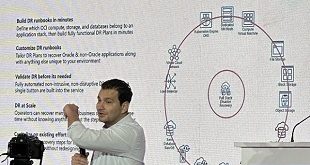
By Dr. Robert Rutaagi
Uganda’s competitiveness in the domestic, regional and global markets
Niche’ and its adjunctive derivative ‘marketing’ is a terminology that is greatly abused. The word niche is of French origin, meaning “a small hole, in a large wall, usually used to hang a photograph or art craft”. Therefore, figuratively, a “niche market”is a very small market, in a relatively enormous market, in which a product or service is comfortably marketed, not, necessarily, competitively but because of the fond interplay of supply and demand. For example, Uganda Coffee Development Authority (UCDA) is able to sell Uganda’s coffee (any quantity, quality, at any price, through any channels, using any marketing mechanisms) in the Chinese market, where Nescafe and Starbacks, are formidable competitors. Likewise, Uganda sells its fruits, vegetables and flowers in the huge European markets, not so much because Uganda is sustainably competitive in those products, but because some crazy Europeans have a special fancy for organic products from Tropical Uganda, that Pearl of Africa which fascinated Winston Church Hill.
Uganda’s economic competitiveness, in this context, may be regarded as a microcosm of the African (generally) and East African Regional market (in particular).
Individuals, companies and nations compete. Products and Services also compete. Where does competition take place? In the domestic, regional and global markets. Why is competitiveness necessary? To win the consumer, gain market share, earn sales and profits, gain and maintain loyalty of consumers. What are the criteria (basis) for competitiveness? Quantity, quality, prices, efficient distribution channels and effective and efficient communication.

In full light of all the above, some integrated conclusions about Uganda’s competitiveness can be reached:
Uganda’s majority of exports, including coffee, the legendary traditional leading export, for many years, are not sustainably competitive enough except, perhaps, in limited niche markets and periods in the domestic, regional and global markets. Even as a country, Uganda is not sustainably “competitive” in the real sense of the word (ACR, WEF: 1998-2004).
Uganda’s economy, still teems with production constraints, remaining persistently unresolved since the colonial era.
More than 80% of foreign exchange earnings (excluding services, remittances and gold) come from only 20% of export products, including traditional exports (Coffee, Cotton, Copper/ Cobalt, Tea, Tobacco, Tourism).
Given the above scenario and a plethora of non-traditional export products that have emerged in the last 20 years or so, Uganda is already over-diversified with products that contribute insignificantly to total export earnings, quite contrary to the romantic belief and debate that Uganda badly needs economic diversification. Even the recent upsurge of increased export earnings due to regional market in South Sudan and Eastern DRC, are due to unsustainable primary raw products and re-exports of motor vehicles, equipments and numerous imported merchandises.
In order to dramatically improve Uganda’s competitiveness and export earnings, more emphasis should be given to improving the quantity, quality and value addition of the 20% of export products and or developing new high value export products such as oil products, steel, processed products such as coffee and tea or phosphates.
The Ugandan Leadership, has the necessary vision, mission capacity to develop national, regional and global competitiveness, but that vision, mission and capacity are not yet adequately owned and shared by a critical mass of the Population in order to enjoy full realization of its benefits in a complex, liberalized, privatized, decentralized and globalised economy that still teems with social, economic and political distortions that require rationalisation, harmonisation, internalisation and integration of societal values. This calls for a paradigm shift in the level human as well as societal consciousness.
Public Private Partnership Programmes (PPPP) are a fundamental sine qua non for the development of the sustainable competitiveness of Uganda’s products and services in the domestic, regional and global markets.
In full light of the above and more reasons for which this analysis has limited time and space to lucidly discuss in greater detail, the President’s popular statement, in various fora, that “Uganda’s problems are markets and not production” (paraphrased), needs sympathetic reconsideration by whoever has prepared His Excellency’s Executive Briefs or Aide Memoirs. Considering that His Excellency President Yoweri Kaguta Museveni has been the single Protagonist- export- markets Campaigner, he deserves to be given all the facts about Uganda’s status on the global economic competitiveness barometer. ‘I rest my case’.
Dr.Robert Rutaagi is a retired Public Sector Management Specialist, currently, Management Consultant, University & Freelance Journalist & author. Contact: rrobertrutaagi@gmail.com & Blog: robertrutaagi.wordpress.com
 The Independent Uganda: You get the Truth we Pay the Price
The Independent Uganda: You get the Truth we Pay the Price



